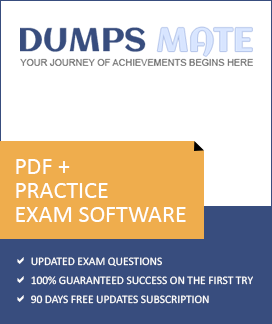IAPP CIPM Exam Dumps FAQs
1. What is the IAPP CIPM Certification?
The IAPP CIPM (Certified Information Privacy Manager) is the premier global credential for privacy program leadership. Earning this credential demonstrates your mastery of establishing, maintaining, and managing successful privacy programs across their entire lifecycle.
2. What are the eligibility criteria for the IAPP CIPM Certification?
To be eligible for the IAPP CIPM certification, you must have a minimum of two years of professional experience in privacy program management or a related field. Alternatively, you can qualify with one year of experience if you have a CIPP, CIPT, or another relevant certification.
3. What are the key areas covered in the IAPP CIPM Exam?
The IAPP CIPM Exam focuses on four core domains:
- Foundational Privacy Knowledge: Concepts, principles, and terminology related to data privacy.
- Privacy Program Management: Establishing, implementing, and maintaining a comprehensive privacy program.
- Privacy Technologies and Tools: Utilizing tools and technologies to support privacy compliance.
- Emerging Privacy Issues: Navigating evolving privacy laws, regulations, and trends.
4. What is the format of the IAPP CIPM Exam?
The IAPP CIPM exam is a computer-based exam consisting of 90 multiple-choice questions. You will have 2.5 hours to complete the exam.
5. What is the passing score for the IAPP CIPM Exam?
The passing score for the IAPP CIPM exam is 300 out of 500.
6. What is the difference between the IAPP CIPM and IAPP CIPT Certifications?
Both the IAPP CIPM and CIPT certifications demonstrate expertise in data privacy, but they cater to different roles and skillsets. Choosing the right one depends on your career goals and professional background. Here's a breakdown of their key differences:
Focus:
- The IAPP CIPM Exam is Designed for privacy program management. Ideal for professionals responsible for establishing, implementing, and overseeing comprehensive privacy programs within organizations.
- The IAPP CIPT Exam is tailored for privacy technology professionals. Equips technologists with the knowledge and skills to integrate privacy considerations into IT services and products.
7. How can I prepare for the IAPP CIPM Exam?
DumpsMate offers comprehensive study materials like CIPM exam questions, CIPM exam dumps, CIPM real questions, CIPM PDF questions and CIPM practice questions, along with a testing engine and study guide, to help you effectively prepare for the CIPM Exam. We also offer a Success Guarantee on our study materials, ensuring your confidence in passing the exam.
8. How long is the CIPM Certification valid?
The CIPM Certification is valid for three years. You can maintain your certification by completing continuing professional education (CPE) credits.







